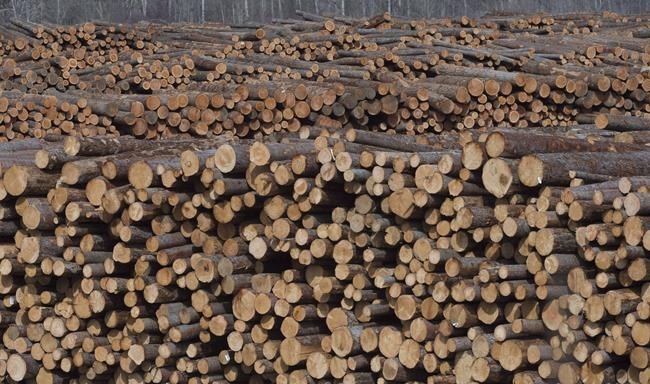Despite coughing up more than $43 million in softwood lumber duties, Western Forest Products managed to realize a profit of nearly $70 million in 2018.
According to financial statements, the Island’s largest logging and milling company managed to deal with several issues in 2018, and set a record in terms of revenue to realize a net profit of $69.2 million, down from the $74 million in 2017.
Last year, as a result of strong prices for its specialty products (the company’s average lumber price was up six per cent compared to 2017), Western realized a record $1.197 billion in revenue, up from the $1.14 billion recorded in 2017.
Chief executive Don Demens said the company’s refined marketing strategy led to higher prices for its lumber products, which helped overcome “the impacts of operating headwinds in 2018 that included a difficult coastal fire season, U.S. export duties, higher stumpage, and volatile commodity markets.”
“We’ve made significant progress in advancing our strategy over the last year, from upgrading our foundational systems, to a mutually beneficial partnership with Huu-ay-aht First Nations, and the acquisition of two U.S assets,” Demens said.
Over the last year Western bought Columbia Vista’s mill in Vancouver, Washington, for $30.5 million and paid $9 million for Hampton Lumber Mills' processing and distribution centre in Arlington, Washington.
The Columbia Vista mill lets Western expand its Douglas fir specialty product offerings mainly for the Japanese market. The Hampton mill is focused on the U.S. The advantage to having U.S. production facilities is the lumber produced there is not subject to softwood lumber duties if sold in the U.S. market.
That could play well for the company down the line after a 2018 that saw it spend $43 million in countervailing and anti-dumping export duties.
“We believe the U.S. softwood lumber duties are unwarranted. However, we have not seen any movement to a negotiated settlement,” said Demens. “To protect our business, Western has submitted a NAFTA challenge contesting the U.S. government’s decision to treat cedar products the same as commodity lumber. Our goal is to have western red cedar exempt.”
Western has paid $65 million in tariffs since the duties were imposed. A ruling on the NAFTA challenge is not expected until late this year. Western has long argued it has been unfairly caught in the dispute as the duties paid are determined on the value of lumber exported and its U.S. shipments are predominantly high-value, appearance grade cedar and not the lower-priced spruce, pine and fir that is at the heart of the dispute between Canada and the U.S.
Demens said the cost of selling into the U.S. has not stopped Western from investing in operations. “We have offset some of the impacts of the duties by leveraging our recent mill capital investments, like our timber deck at the Chemainus sawmill, to increase the production of high-value products,” he said.



